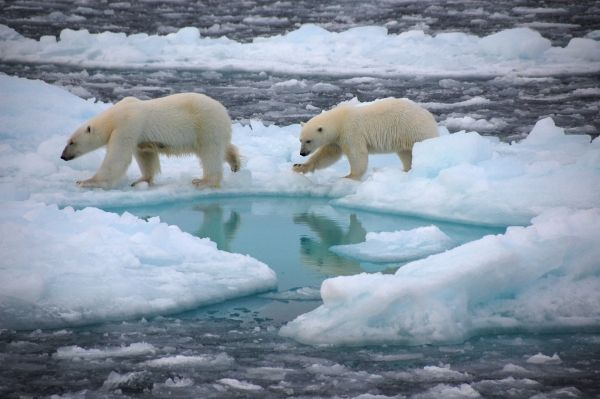Summer Arctic sea-ice is predicted to disappear before 2050, resulting in devastating consequences for the Arctic ecosystem. The efficacy of climate-protection measures will determine how often and for how long. These are the results of a new study involving 21 research institutes from around the world, including McGill University.
The North Pole is presently covered by sea-ice all year. Each summer, the area of sea-ice coverage decreases and grows again in winter. However, as a result of global warming, the overall area of the Arctic Ocean covered by sea-ice has reduced rapidly over the past few decades. According to the researchers, this substantially affects the Arctic ecosystem and climate. The sea-ice cover is a hunting ground and habitat for polar bears and seals and keeps the Arctic cool by reflecting sunlight.
“While the Arctic sea-ice extent is decreasing during this transition to an ice-free Arctic, the year-to-year variability in extent greatly increases, making life more difficult for local populations and ice-dependent species,” says co-author Bruno Tremblay, Associate Professor in the Department of Atmospheric and Oceanic Sciences at McGill University.
Read more at McGill University
Photo credit: Dirk Notz


